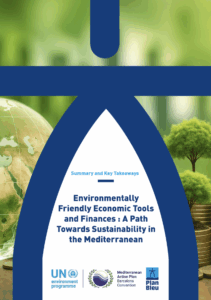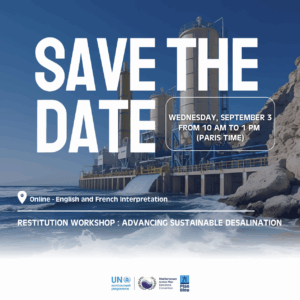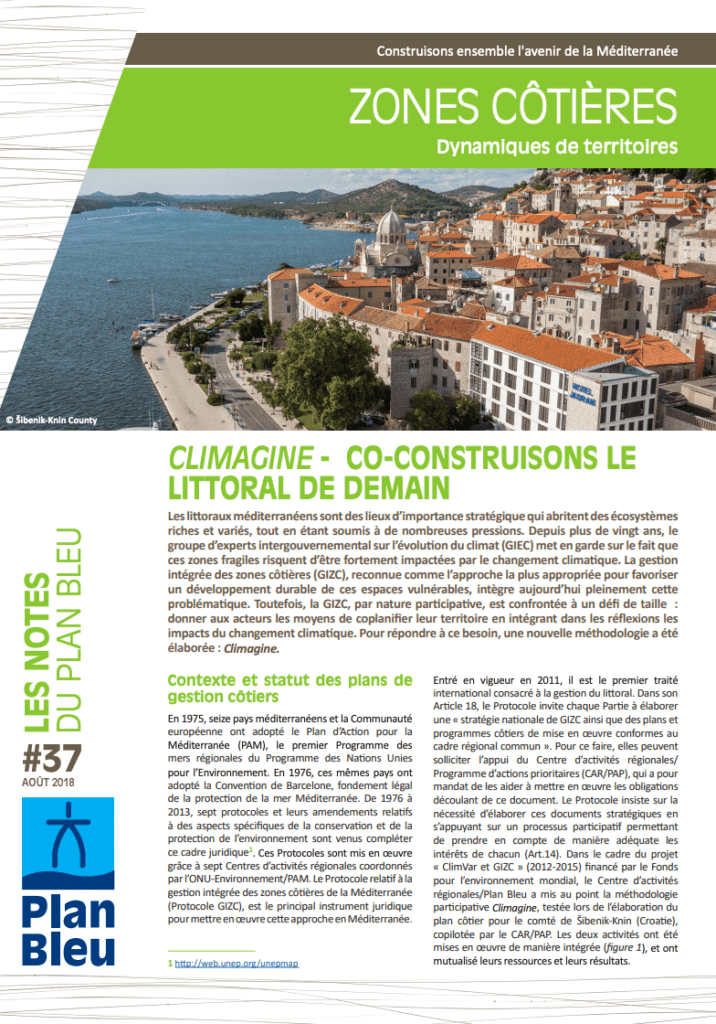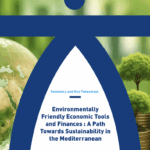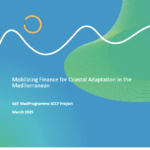Mediterranean coastlines are places of strategic importance, which are home to a rich diversity of ecosystems. However, they also face numerous pressures. For over twenty years, the International Panel on Climate Change (IPCC) has warned that these fragile zones could be severely impacted by climate change. Integrated Coastal Zone Management (ICZM) is recognised as the best way to promote the sustainable development of these vulnerable spaces and it now fully incorporates this issue. However, the participatory nature of ICZM means that it faces a major challenge in order to give stakeholders the tools they need to coplan their territory while taking into account the impacts of climate change. A new method has been developed to meet this need, known as Climagine.






